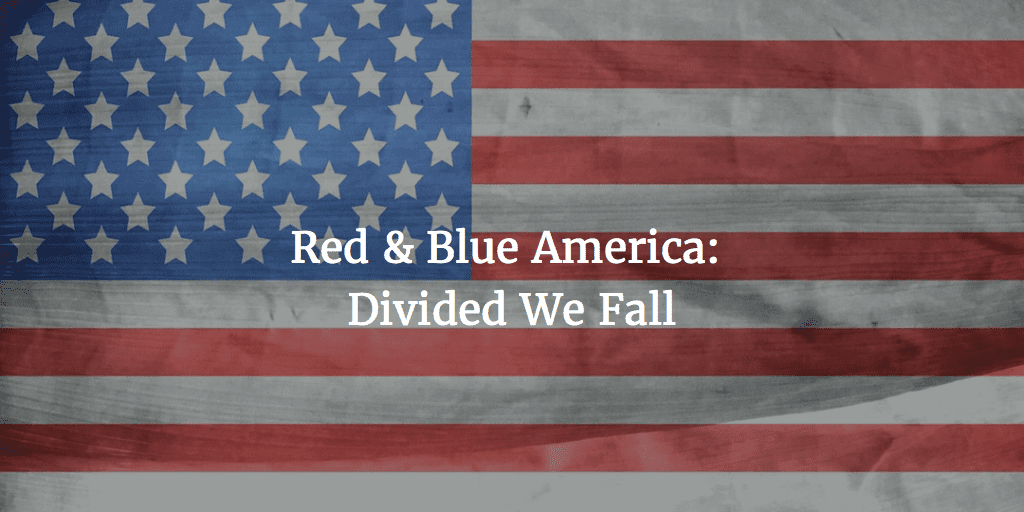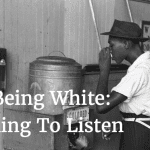 I want to take a break for a while from the Gospel According to Stranger Things to address some of the things that I see happening in our world, specifically the country that I live in.
I want to take a break for a while from the Gospel According to Stranger Things to address some of the things that I see happening in our world, specifically the country that I live in.
Because of the sensitive and divided nature of the time we’re in and the things I want to say, I’ve thought a lot about how to do this. And I think it’d be best if I started addressing two different issues, through two different blog series that will run alternatively on Tuesday and Thursdsay.
The first series has to do with the increasing fear of and experience of hostility or lewdness that is being directed toward minorities and women.
Since the night of the election, I’ve had several of my black friends tell me stories about frightening encounters that they’ve had with people who appear to be emboldened by a Trump Presidential election.
I trust the people who have told me these stories, and while anecdotal, our black brothers and sisters are genuinely afraid, and this is needs to be a problem for everyone.
I want to address those horrible incidences and offer some suggestions as a white, middle class male that might be helpful to others who find themselves in a position like me, those of us who have not a small amount of privilege and a lot of confusion about what to do with it.
This first series is going to be a review of and conversation with the book that I was recently introduced to called Stand Your Ground: Black Bodies and the Justice of God.
And the second series is about another set of problems that I’d like to address.
Right now the statistic that is being repeated to me by the majority of people disappointed in the Trump election is that 80% of White Evangelicals voted for Donald Trump. Why is that?
While there were a some evangelical leaders who endorsed him, mostly because of the logic of SCOTUS appointees, most of the preachers and church leaders I know never did. If anything they did the exact opposite.
Almost all of the leaders of Evangelical institutions that I’m aware of were not Trump supporters, sometimes very vocally so. Op-ed pieces ranging from the former Southern Baptist Convention President Russell Moore to Andy Crouch, the Executive Editor of Christianity Today that were denouncing Trump and his rhetoric/policies/morality ran through my time line over the past year.
Not to mention my friend and fellow Church of Christ pastor Max Lucado who came out early and strong against Donald Trump as a Presidential candidate.
I’m aware of the several evangelical leaders who endorsed him, people like Eric Metaxas and James Dobson, but it’s important to remember in the words of Dr. Ed Setzer, who holds the Billy Graham Chair of Church, Mission, and Evangelism at Wheaton University and is a contributing editor at Christianity Today “many evangelicals voted for Trump, not because of their pastor or church leaders political influence but despite it.”
So why?
I have a hunch. And it has little to do with religion, although that’s often mixed in there (I suspect as a way of helping us make sense of our own cognitive dissonance).
I have a hunch, because I’m a hillbilly. I come from Arkansas and I grew up on a farm in a rural community.
These are my people, and I get them.
And yet, I haven’t lived in Arkansas for 15 years, I have a graduate degree and have spent the last decade and a half living in both a cosmopolitan city and then a college town.
And so I’d like to, in the spirit of building empathy and compassion between the sophisticated elites that I spend a lot of my time with these days, and the people that I come from. I’d like to try to explain, however misguided you may see their logic, why the overwhelming amount of the white working class voted for a man like Donald Trump.
So I’d like to do a kind of review of and conversation with J.D. Vance’s great memoir Hillbilly Elegy.
My intention isn’t to change anyone’s mind and it’s certainly not to defend racism or homophobia or the like, it is to build bridges instead of walls between people who I love. And to that end, I’d like to ask you to keep the comments civil and the self-righteousness to a minimum.
Because we have much work to do if we want to understand each other.
So here goes.
Wish me luck.
Next Up: On Being White










